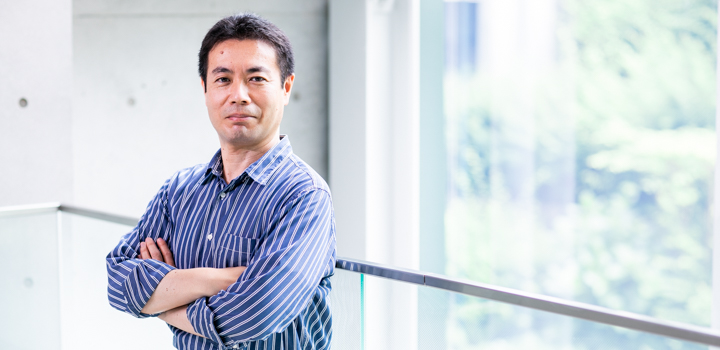Takafumi Suzuki

Main Lab Location:
CiNet (Main bldg.)Other Affiliations:
Guest Professor, Osaka UniversityMailing Address:
1-4 Yamadaoka, Suita City Osaka, 565-0871Email:
t.suzuki at nict.go.jpMy lab develops basic brain-machine interface (BMI) technologies for next generation basic and clinical neuroscience applications.
I work in collaboration with a number of research groups both inside and outside of CiNet. For example, we are developing hardware technologies including multi-channel flexible electrode arrays, wireless BMI data transmission systems using UWB (Ultra Wide Band), and neural probes with micro fluidic channels. My lab also works on methodological aspects of BMI technology, including decoding algorithms for BMI, sensory feedback for BMI, and control systems for plastic changes in neural networks.
A particular focus of our research is on electrocorticogram (ECoG) signals – electrical activity recorded directly on the surface of the brain. It has recently been attracting increased attention as a source signal for clinical BMI because it offers a good balance of features: less invasive than penetrating electrode methods, and a higher spatial resolution than EEG.
Currently, we are developing a novel super-multi-channel recording system for BMI, involving ECoG signal recording from 1024-4096 channels, signal amplification, and wireless transmission by UWB (Ultra Wide Band). We hope these technologies will provide valuable applications and new directions in basic and clinical neuroscience.
Selected Publications:
Kaiju T, Inoue M, Hirata M, Suzuki T,
High-density mapping of primate digit representations with a 1152-channel μECoG array, Journal of Neural Engineering, 18(3) (2021)
Kaiju T, Doi K, Yokota M, Watanabe K, Inoue M, Ando H, Takahashi K, Yoshida F, Hirata M, Suzuki T, High Spatiotemporal Resolution ECoG Recording of Somatosensory Evoked Potentials with Flexible Micro-Electrode Arrays, Front. Neural Circuits, 11 (2017)
Ando H, Takizawa K, Yoshida T, Matsushita K, Hirata M, Suzuki T Wireless multichannel neural recording with a 128-Mbps UWB transmitter for an implantable brain-machine interfaces, IEEE Trans Biomed Circuits Syst, 10(6):1068-1078 (2016)
Short Biography:
Takafumi Suzuki received a Engineering degree from Graduate School of Engineering, the University of Tokyo in 1998. From 1998 to 2012, his work included artificial touch sensation using neural stimulation, neural control systems for artificial hearts, and work developing flexible neural probes. He was a research associate and assistant professor at the University of Tokyo until 2012, prior to moving to CiNet.
Lab Members:
Engineer
・Megumi Takahashi
・Masashi Omokawa
・Seitetsu Boku
